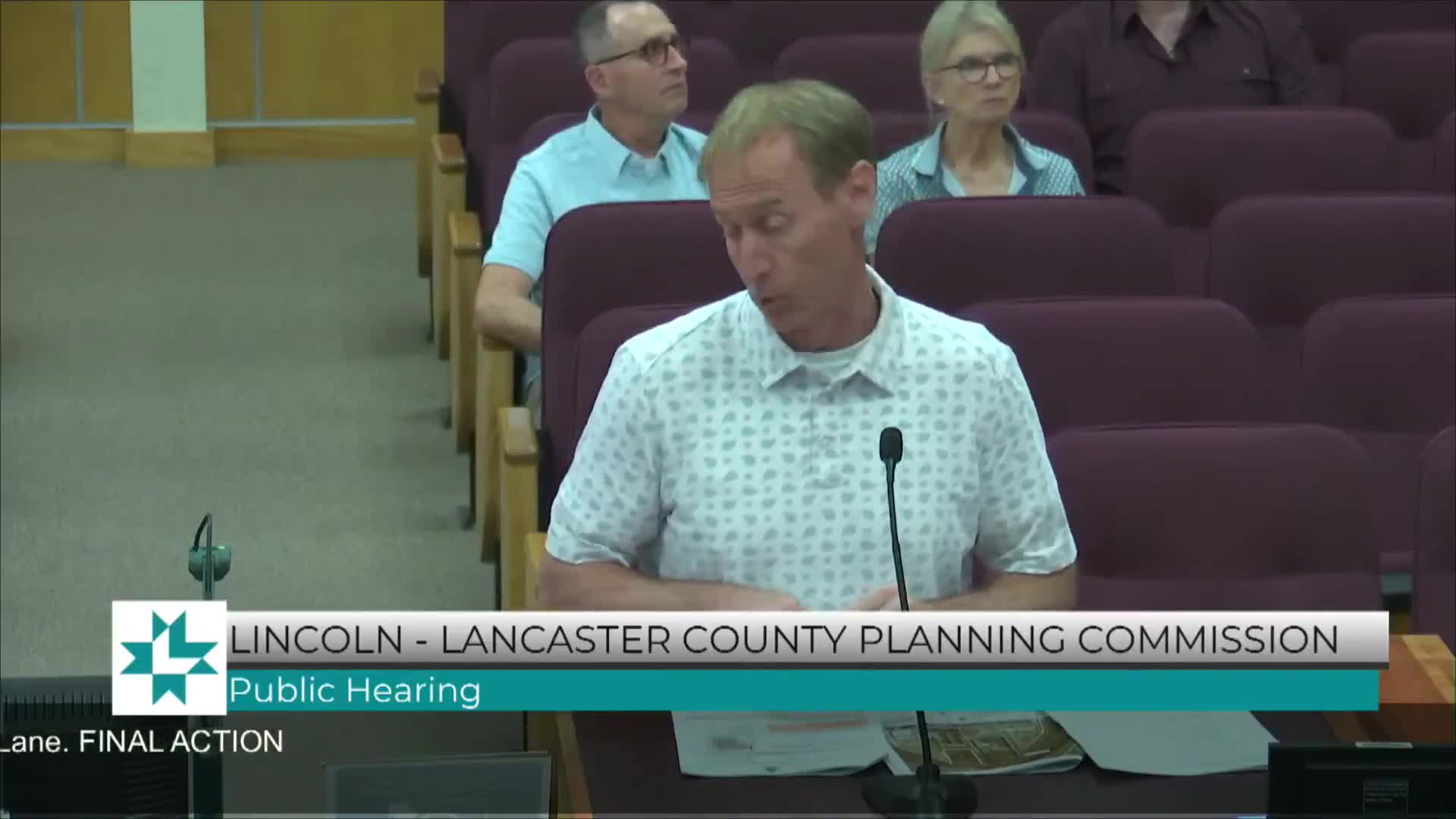Article not found
This article is no longer available. But don't worry—we've gathered other articles that discuss the same topic.
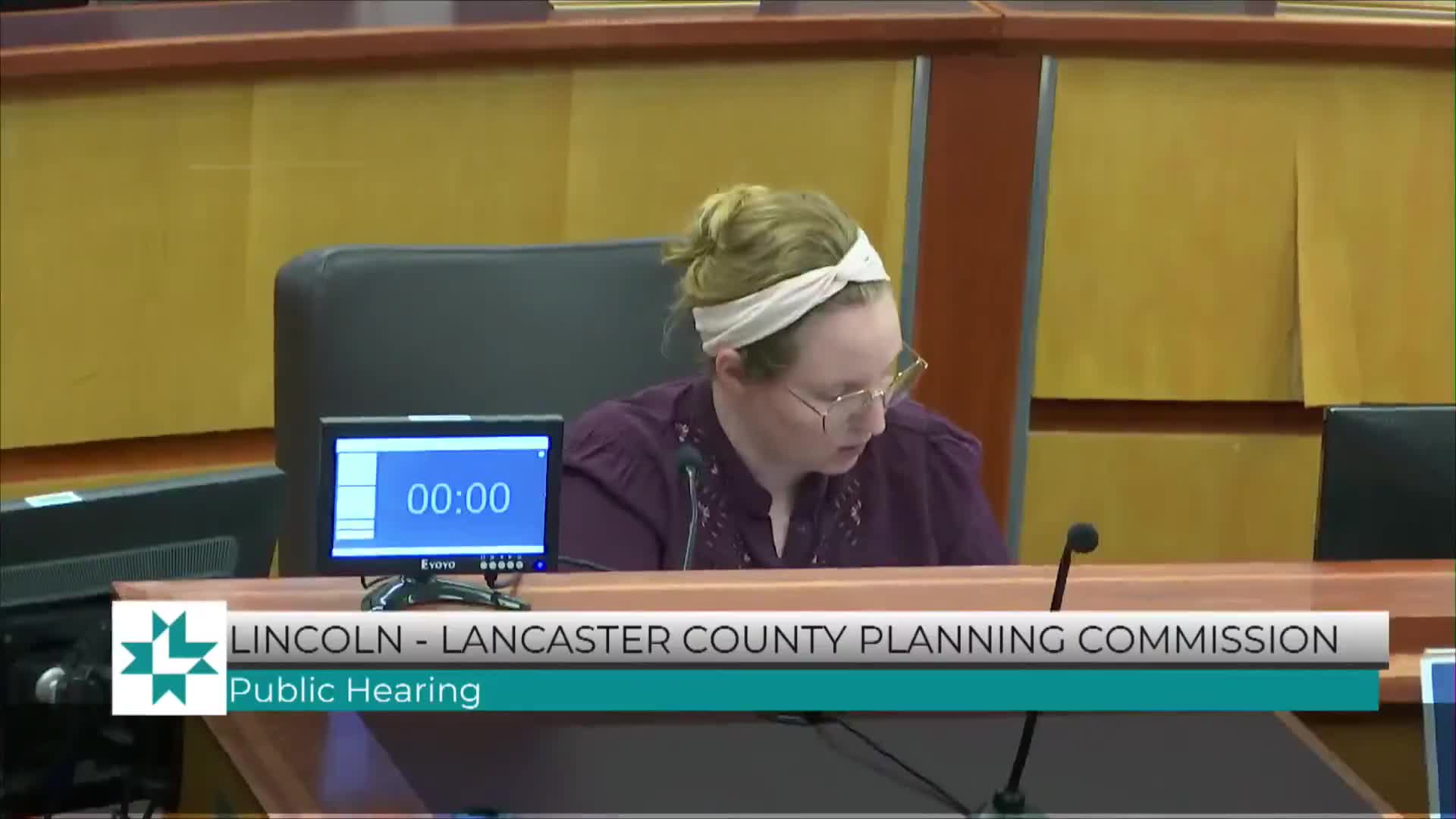
Planning commission backs new rules for battery energy storage, recommends special permits in agricultural zones
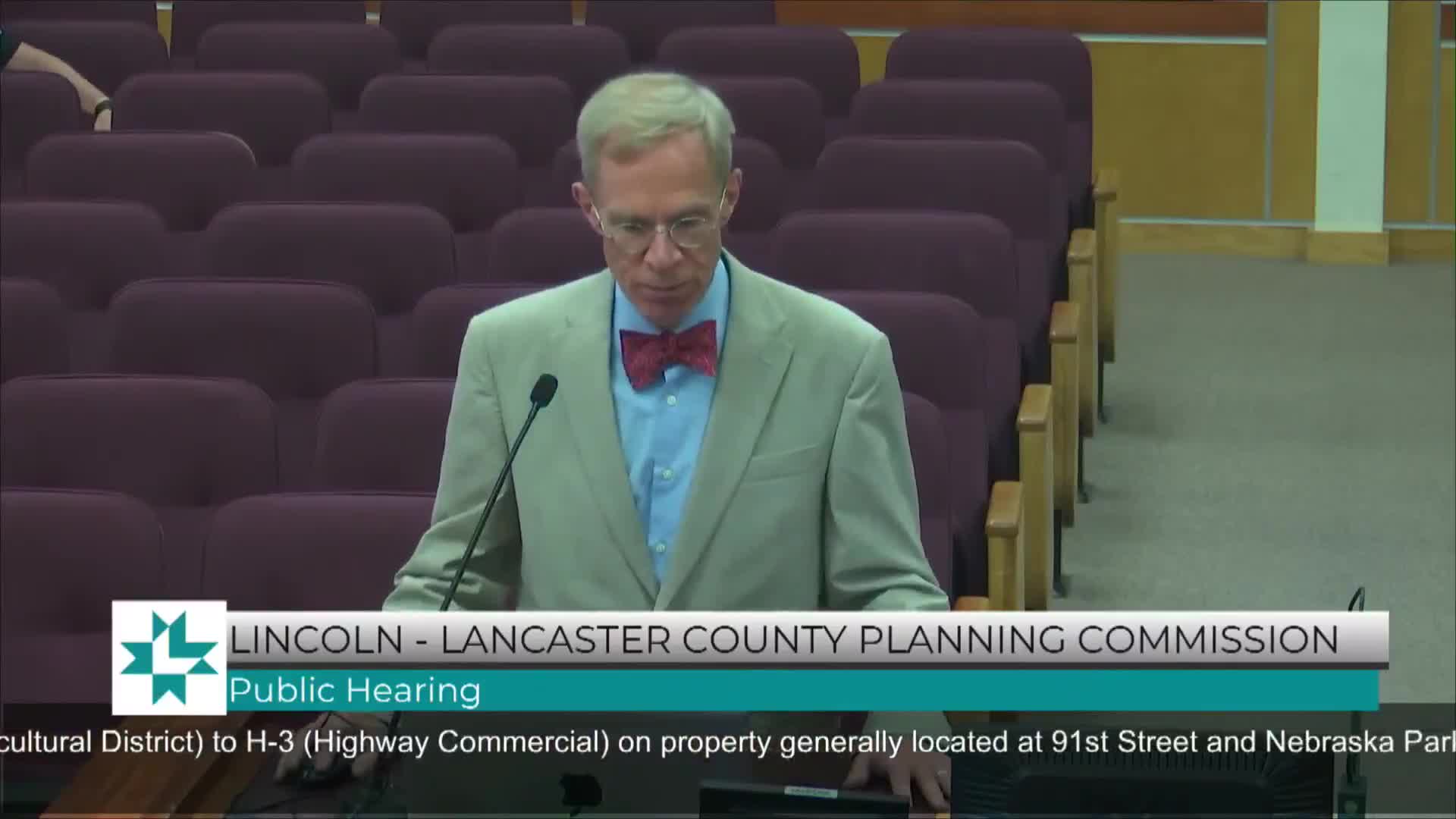
Planning commission votes 5-1 to send Rentschler property rezoning to council amid Cheney SID concerns
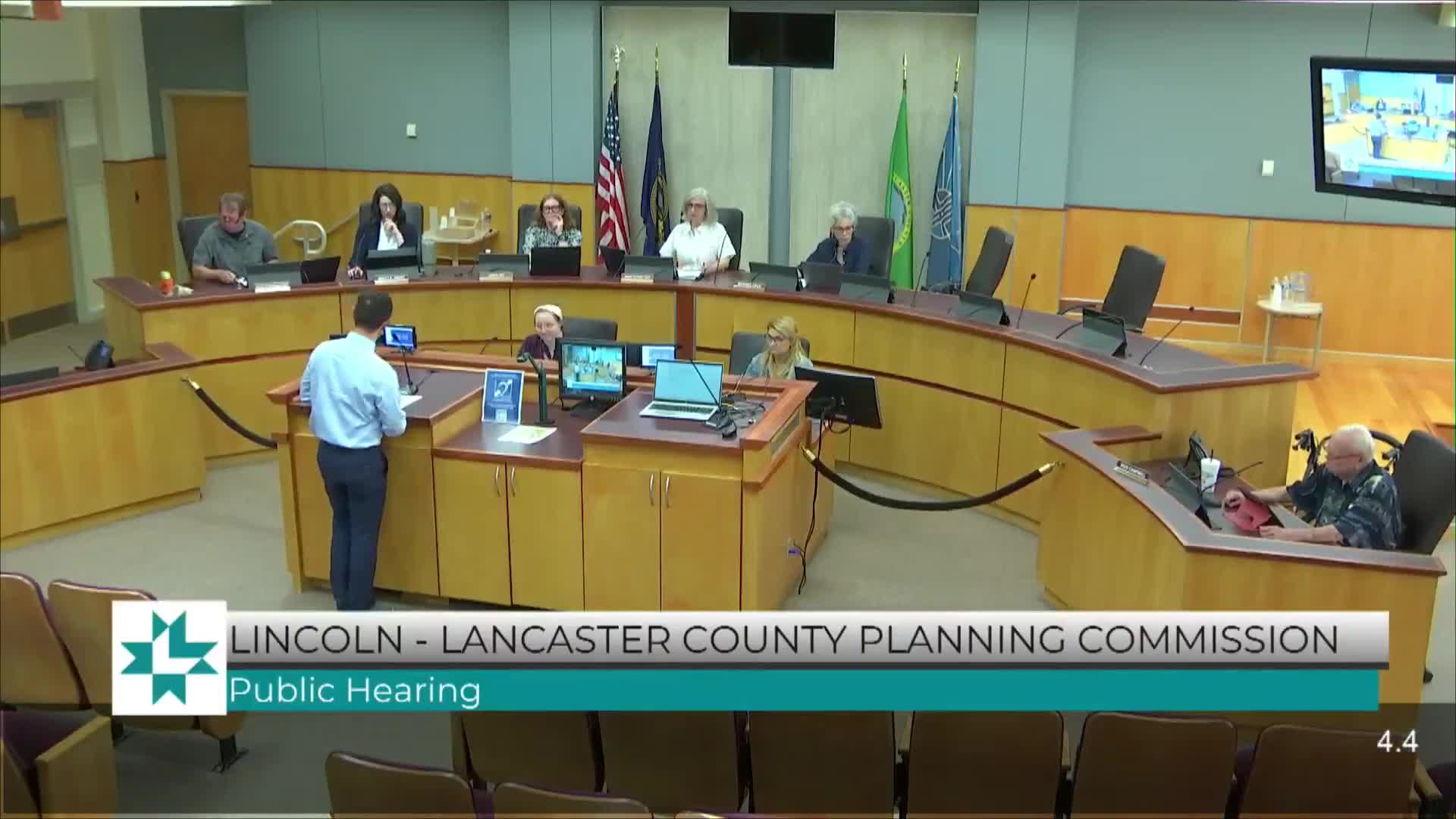
Neighbors and developer to review drainage and cart-path changes after commission defers Highmark Estates lot addition
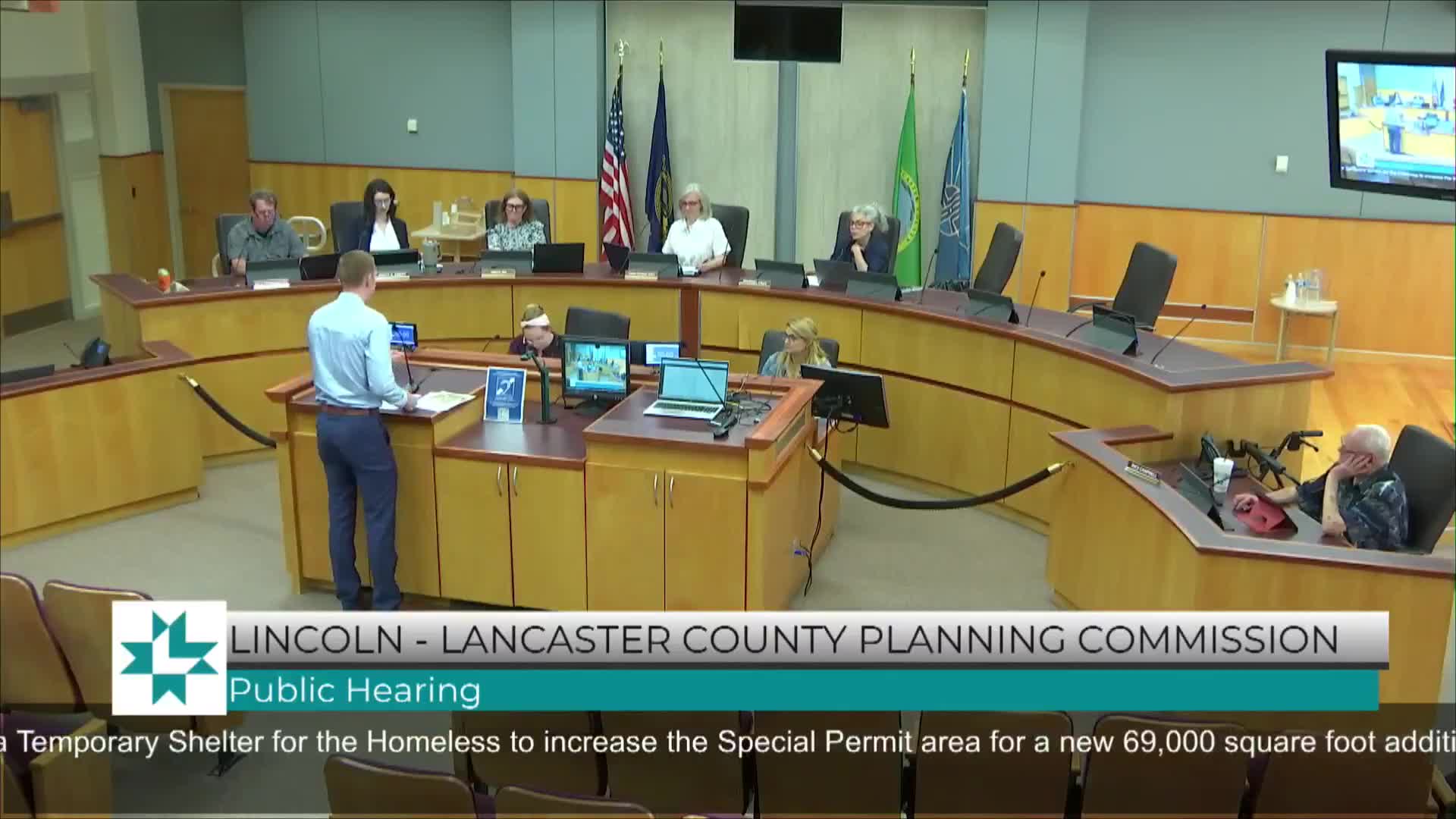
Planning commission delays vote on People City Mission expansion to resolve floodplain, traffic and loading concerns
